News
Explore the latest news about Obermann programs, events, and our interdisciplinary community of scholars.
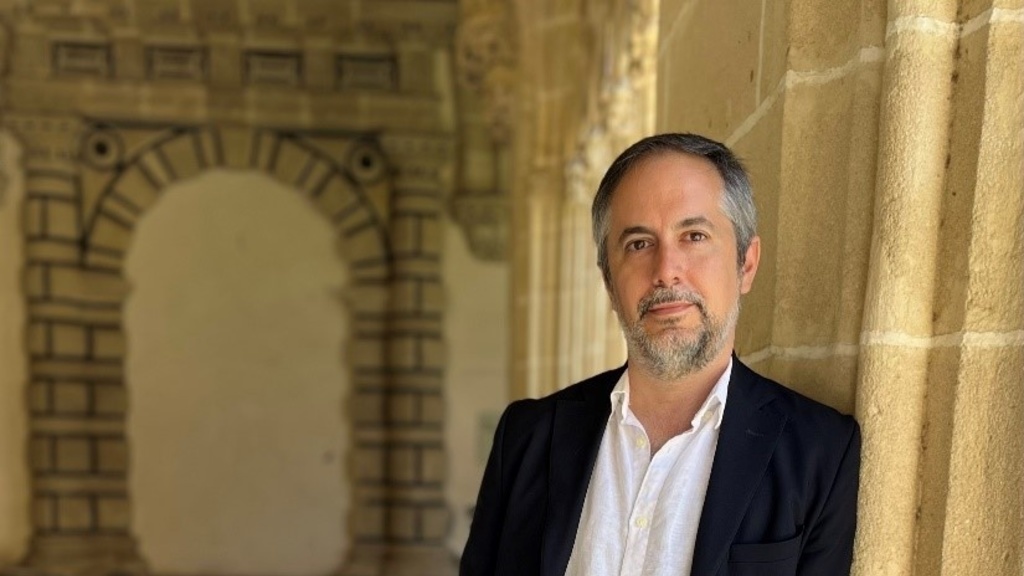
Martín-Estudillo named new director of Obermann Center for Advanced Studies
Monday, April 15, 2024
Luis Martín-Estudillo, professor and collegiate scholar in the Department of Spanish and Portuguese in the College of Liberal Arts and Sciences, will serve as the next director of the Obermann Center for Advanced Studies (OCAS). His appointment will begin July 1.
“We are very excited that Professor Martín-Estudillo has agreed to lead the Obermann Center for Advanced Studies into its next chapter,” said Kristy Nabhan-Warren, associate vice president for research. “He brings a wealth of international connections, fresh ideas, and a proven track record of collaboration across units and disciplines here at Iowa and beyond. The search committee was deeply impressed with his vision for the center, and the campus feedback we solicited confirmed and amplified our excitement for new possibilities for OCAS.”
For more than four decades, the OCAS has served as an interdisciplinary hub for artists, scholars, and researchers who bridge campus with the larger world.

Obermann Center Hosts Spring 2024 Environmental Series
Monday, February 5, 2024
This spring, the Obermann Center for Advanced Studies hosts the Interdisciplinary, Experiential Environmental Education and Research series, which invites campus artists, humanities scholars, and researchers in the sciences and social sciences to imagine the many ways that our campus and connected spaces might serve as a living laboratory for environmental research. The series, co-sponsored by the Office of the Vice President for Research, includes visits from facilities and research leaders at other campuses who have developed transformative, place-based research collaborations that include students, staff, and faculty. Kathleen Socolofsky, Assistant Vice Chancellor and Director of the UC Davis Arboretum and Public Garden, will present "The UCD Arboretum and Public Garden as Interdisciplinary, Learning Laboratory—Connecting the Campus and Community Through Experiential Teaching, Learning, and Research on and in the Environment" on Friday, April 5, alongside Bethany Wiggin, professor and Founding Director of the Program in Environmental Humanities and the My Climate Story and Ecotopian Toolkit projects at the University of Pennsylvania, who will present ""Humanists at Work in the World: Campus-Community Partnerships for Environmental Justice."
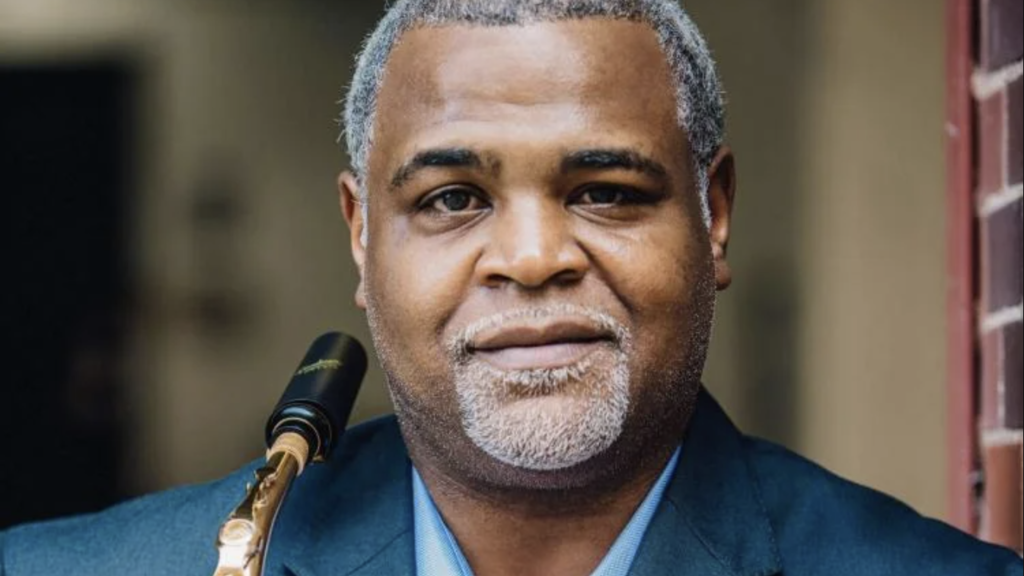
Read and Blew Notes
Monday, January 29, 2024
In November 2023, Damani Phillips (School of Music and African American Studies, CLAS) and spoken-word artist Brandon Alexander Williams released the world's first "listening book," Read and Blew Notes. A new medium intended to replace physical music products like CDs and download cards, the "L.B." brings back the ritual experience of listening to new music with a physical product in hand. The book includes album liner notes, full musical scores, and interviews with artists on how their music came into being. The Obermann Center was proud to support the project through co-sponsorship funding.
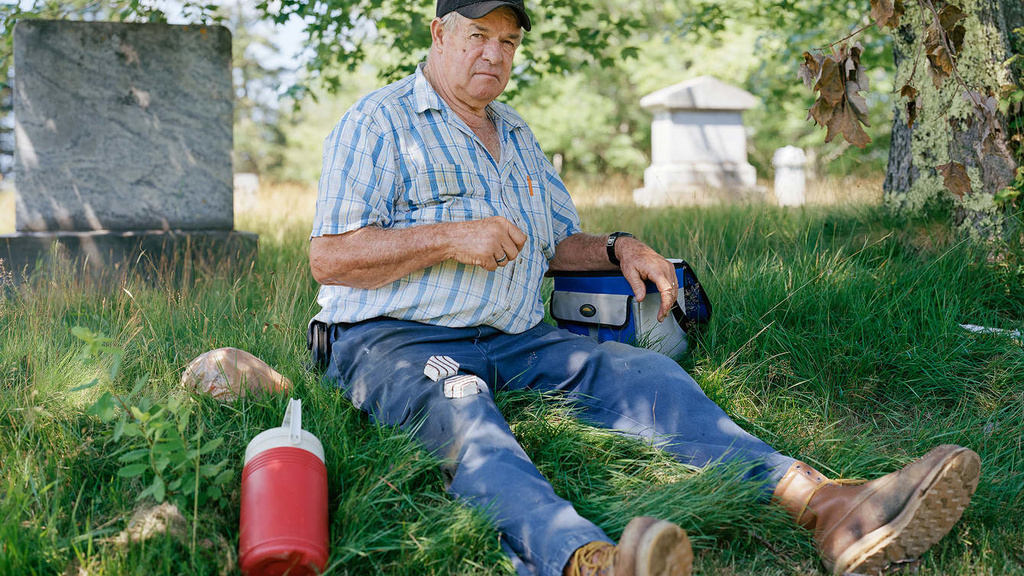
Witnessing the Gravedigger
Monday, November 13, 2023
Who’s your local gravedigger? Do you have one?
The residents of Cherryfield, Maine, do—and it’s not the dirty, shadow-clad figure you’re picturing. It’s local resident Everard Hall, smiling and ball-capped in a plaid work shirt. There’s a harmonica in his pocket and dancing boots in his pickup. Everard (pronounced “EVer-ard”) is one of the few remaining gravediggers in the U.S. who dig by hand—and he does it year-round across northeastern Maine. Using picks, shovels, chains, and winches to haul out rocks, ice, hardpan, roots, clay, and sand, he insists on doing the job with care and precision. It’s not surprising that UI photography professor Thalassa Raasch feels the exact same way about documenting Everard’s work. Her in-progress collection of photos and essays, In Over My Head, documents the unexpected beauty of Everard’s work as a gravedigger and explores the profound thresholds between solitude and community, life and death.
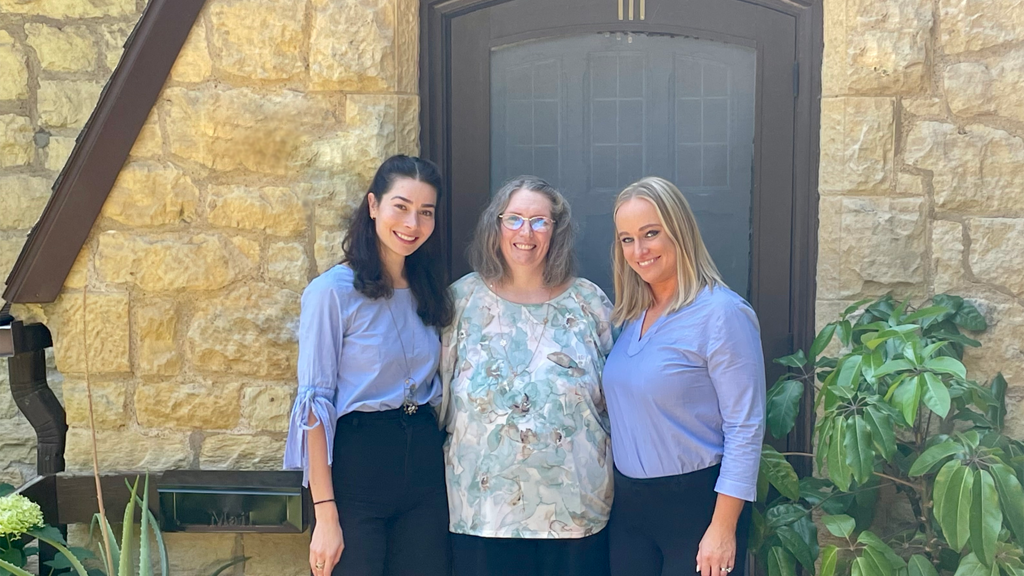
Promoting Breastfeeding in Women with MS
Thursday, September 28, 2023
It’s tough to be a new mother, whoever you are, whatever your income, wherever you live. But for women with chronic health conditions, it’s exceptionally difficult. Even breastfeeding can feel like an insurmountable task, full of uncertainties about the transmission of medications in breastmilk and the physical demands of holding an infant for long periods of time.
This past summer, an Obermann Interdisciplinary Research Grant team, aided by Spelman Rockefeller funding, began studying breastfeeding in women with multiple sclerosis (MS), a chronic disease of the brain and spinal cord. “There’s a huge gap of knowledge in regards to breastfeeding for women with MS,” say the grant project’s co-directors Christine Gill (Clinical Assistant Professor, Neurology), Pamela Mulder (Clinical Assistant Professor, Nursing), and Solange Saxby (Postdoctoral Research Scholar, Internal Medicine)—largely because pregnant and lactating women tend not to volunteer for research trials. It’s a serious oversight, since MS is three times more common in women than in men and is more frequently diagnosed in women of childbearing age (between 20 and 40) than in any other group. Symptoms vary among patients but commonly include fatigue, muscle weakness, tingling, numbness, vertigo, and walking difficulties due to nerve fiber damage.
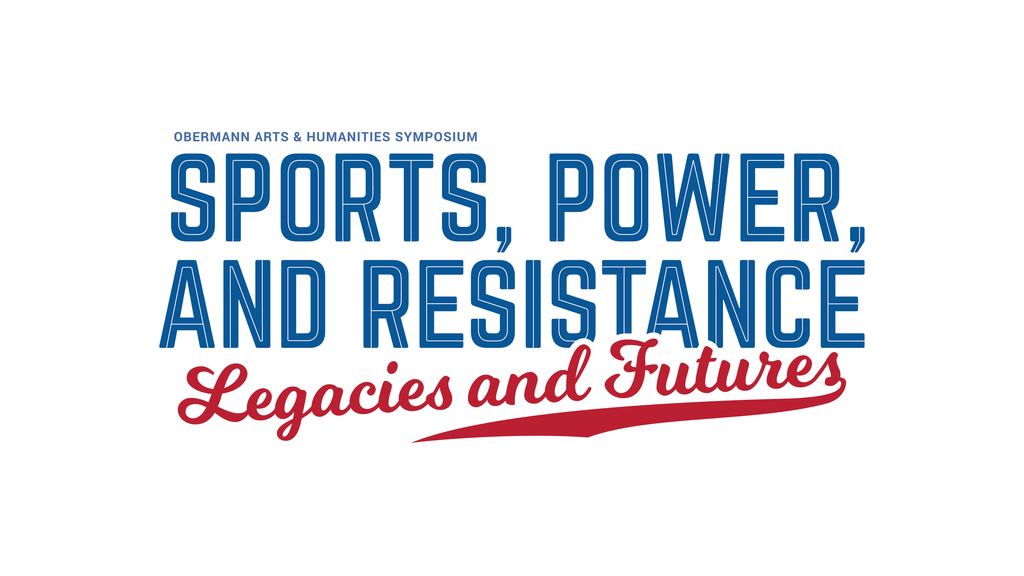
Exploring the Intersection of Sports, Media, and Culture
Tuesday, September 12, 2023
In the ever-evolving landscape of sports, media, and culture, two distinguished University of Iowa scholars, Tom Oates (American Studies and Journalism) and Travis Vogan (Journalism and American Studies), have been instrumental in shaping critical discussions and interdisciplinary explorations. As part of their ongoing commitment to advancing the understanding of sports within broader societal contexts, the two are directing the Obermann Center’s 2023 Arts and Humanities Symposium, “Sports, Power, and Resistance: Legacies and Futures.” With a shared vision of bringing together diverse perspectives, their efforts highlight the important role of sports in contemporary culture and politics.
Below is a Q&A with co-directors Thomas Oates and Travis Vogan.
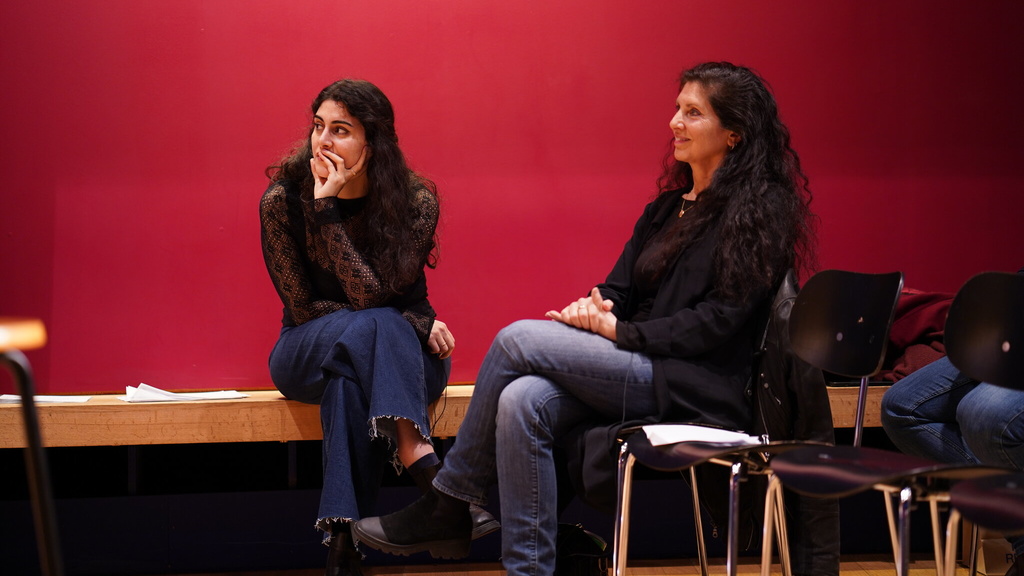
Exploring Trauma and Imagination: "Ruinous Gods: Suites for Sleeping Children" Opera Takes Shape
Thursday, August 17, 2023
Obermann Interdisciplinary Research Grant recipients Layale Chaker and Lisa Schlesinger (Theatre Arts) are deep in the creative process, weaving together the intricate threads of music, storytelling, and stagecraft to bring to life their ambitious opera, Ruinous Gods: Suites for Sleeping Children. The project, commissioned by Spoleto Festival USA, centers on the experiences of displaced children grappling with resignation syndrome—a rare trauma response to displacement—and seeks to carve out a space for imagination and empowerment within the realm of opera.
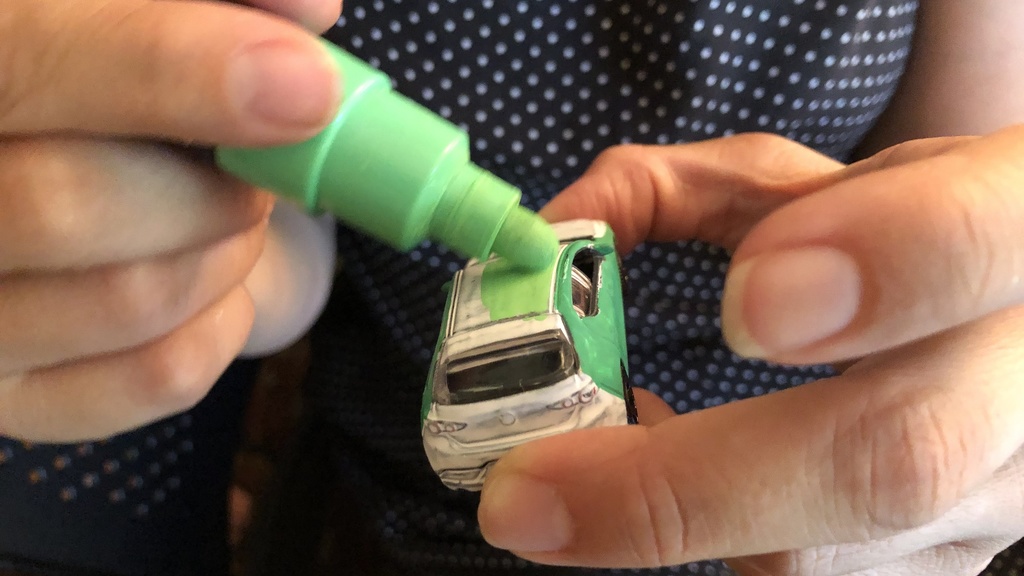
Scholars Create Demo Derby as Comment on U.S. Political Discourse
Monday, August 7, 2023
A green car with the words “climate change” emblazoned on its doors slams into the back of a red car with the word “healthcare” on it, crumpling the bumper. Other cars with the terms “gun control,” “free speech,” and “abortion” repeatedly crash into each other in the muddy arena at the county fair, until one car emerges victorious.
Just Crushing is an artwork taking the form of a demolition derby to embody American political discourse as a spectacle of competitive wreckage. The Interdisciplinary Research Group (IDRG) consists of Allison Rowe (Teaching & Learning), Maia Sheppard (Teaching & Learning), and Nancy Nowacek (Stevens Institute of Technology). Drawing upon the theatrics of Carnivale, the hometown grandiosity of state fairs, and the rich history of destructive art, vehicles representing critical issues in American politics will brutalize one another as the crowd cheers and jeers them on. Through its live, winner-takes-all battle, this project stands in opposition to the polarizing debates of stylized dialogue across partisan media. In this way, Just Crushing literalizes us-versus-them culture and reveals the absurd extremes to which political discourse has arrived: where every issue must fight for a public and a platform.
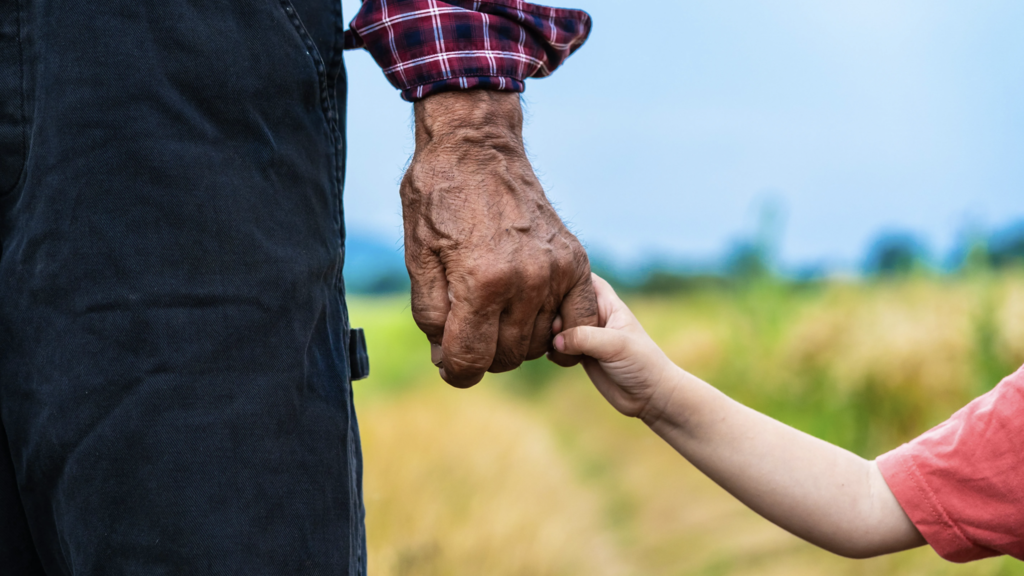
Exploring Healthy Aging across the Life Course
Wednesday, July 5, 2023
Health happens in families and yet many health promotion interventions are not tailored for the family as a unit. Multigenerational households (i.e., families that consist of three or more generations) have become a more prevalent family structure in the U.S. and provide essential caregiving functions. This summer, as part of their Obermann Interdisciplinary Research Grant, "Healthy Aging across the Life Course: Engaging Multigenerational Families Living with Chronic Conditions," Ebonee Johnson (College of Public Health), Duhita Mahatmya (College of Education), and Kimberly Dukes (Internal Medicine) utilized the principles and practices of community engagement to better understand health and healthy aging in multigenerational families experiencing chronic illness and disability.
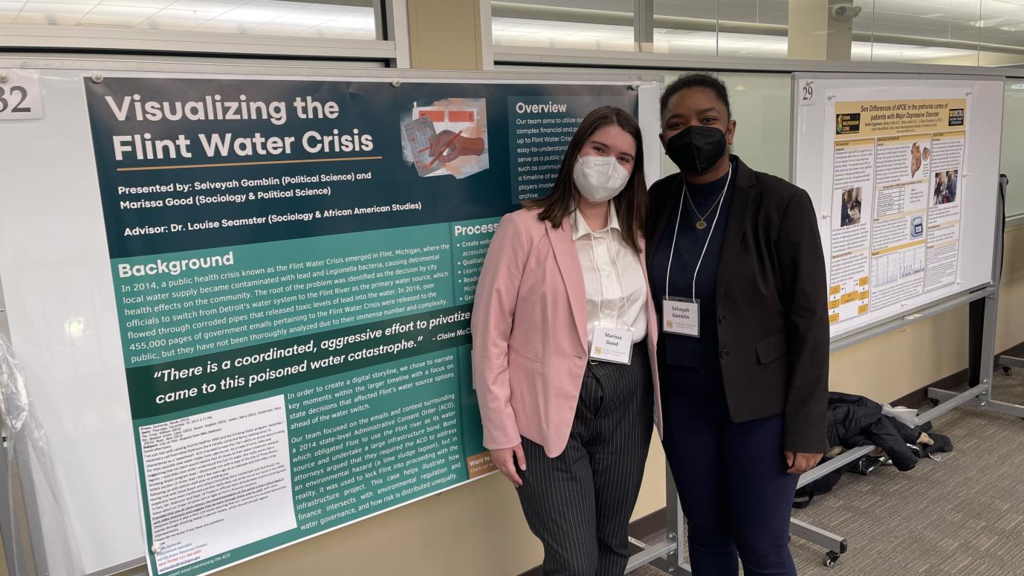
Data Justice for Flint: Seamster Leads Effort to Build Accessible Archive with Humanities Without Walls Grand Research Challenge Project
Thursday, May 4, 2023
For seven years, the Obermann Center has been a partner in the Mellon-funded Humanities Without Walls consortium led by Professor Antoinette Burton at the University of Illinois Urbana-Champaign. Our graduate students have attended HWW’s Career Diversity Summer Workshops, and several faculty members have worked with cross-institutional Grand Research Challenge teams. This year, we are delighted that Assistant Professor Louise Seamster (Departments of Sociology & Criminology and African American Studies) was selected as the P.I. of a team focused on "The Flint Water Disaster Public Archive."
The ”Flint Water Disaster Public Archive” will re-home public data that has been largely inaccessible to Flint communities—a form of data justice that is of urgent relevance to the history, present, and future of those communities. The project is a collaboration among the University of Iowa, University of Michigan–Flint, and the Flint Democracy Defense League.
Below is Obermann Assistant Director Lauren Burrell Cox’s interview with Louise Seamster about the project.
Pagination